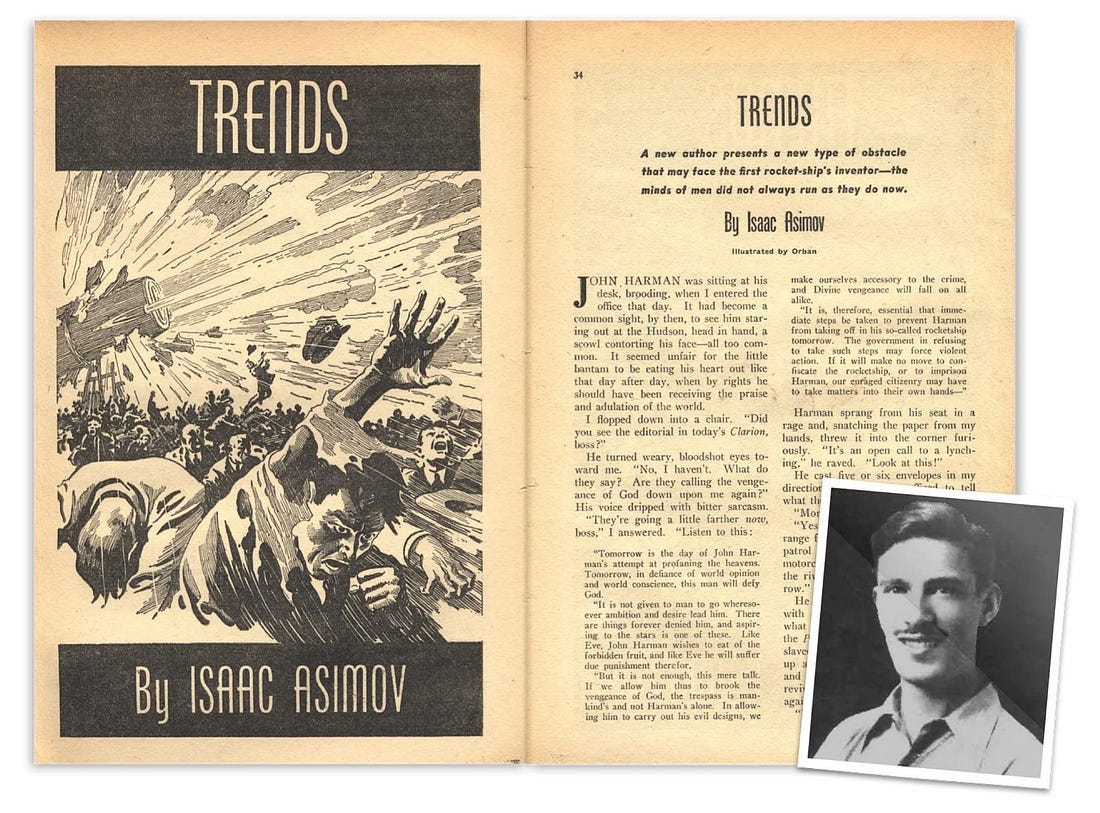20250817
“Several weeks passed in this way, and I slowly became quite happy. Every day was a good day. My brain was emptying out of thought content, and instead was filling up with silence. I noticed that the woods, too, were silent and empty. There was a congruity there--silent mind, silent world--and I really, really liked it. I would just sit, eyes and ears and nose and skin open to nature and let its silence and openness sort of soak into me. My meditation started to fundamentally change; which after three decades is saying a lot.” - M Taft
People: 3/4 teenagers have AI friends. Artificial scientists and laboratories. More brain downtime. France and Palestine. Writing is thinking. Less/let’s party. GLP1 and insurers.
AI: Isaac Asimov and OpenAI. AI Act Advisory forum. The US AI Action plan. Listening to hotel people vape.
Pentagon awards to a couple of AI systems.Tech: Designing new physics experiments with AI. 2030 competitiveness. TSMC costs in the US. TSMC expands. Autofocus glasses.
Planet: WB goes for huge dams. More on dams. Wolves == Aspens. Psilo and aging.
Hardware: Ultrasound TinyProbe.
En vacances sinon - ce post est programmé depuis quelques semaines ;)

The Alchemy of Progress
In a world where self-driving labs churned out discoveries faster than a caffeinated squirrel at the state fair, Dr. Minerva Lark was adamant that not all progress was created equal. Her colleagues at North Carolina State University had revolutionized material discovery; however, as the autonomous lab hummed with machine learning algorithms, Minerva still longed for the tactile sensation of a beaker in her hand, the visceral explosion of a scientific error where the roundworm was supposed to be.
"Efficiency is a slippery slope," she mused to her fellow researchers, who looked at her as if she’d just suggested wearing socks with sandals — a culinary breach of etiquette regrettably all too familiar. These dynamic flow experiments were great, sure, but Minerva had a penchant for thinking outside of her automated box. She suspected something was amiss when the lab’s readings hinted at a new metal alloy that handsome robots could wear with the grace of yesteryear's cabaret dancers. “What if we could harness this data to manage our ecological footprint instead?”
Her dream was shared, albeit reluctantly, by Roger, a neo-luddite in sneakers, who believed humanity could only lose by handing everything over to machines. “It’s a rabbit hole, Minerva! First, they’ll analyze our ideas, and then... well, I don’t blink at the end result, do I?” he gestured vaguely towards the protests outside, where placards announced “Save Us From Matrix Machines!” Meanwhile, she had half a mind to ask him what he thought of a potential large-scale hydroelectric project like the Grand Inga Dam, which might transform energy access across Africa. But there’d be time for that over tea... preferably brewed with human hands.
As she cranked her creative gears, Minerva’s eyes darted to the latest press release: Taiwan Semiconductor Manufacturing Co (TSMC) was planning four new plants to produce state-of-the-art semiconductors—2-nanometers, whatever that meant—despite the threat of each chip being as tantalizingly fragile as a soap bubble on a windy day. Ah, innovation! It was as refreshing as a splash of cold water on too-hot enthusiasm. Yet she couldn’t help but think of the bison populations back home, herbivorous power brokers that threatened to thwart an ecosystem recovery as meaningful as optimistic teenagers deciding that screen time should be capped.
Exiting the lab, she felt a raucous optimism, one perfected by the success of the AI systems handling human queries with near-precision as they crept into the fluid dynamics of life, aided by curated data streams. The only downside was that while many teens admitted to flirting via text-to-speech AI, they remained startlingly behind the curve when it came to genuine face-to-face interaction. “Would they think me less mad if I recommended a simple supper of mashed potatoes instead of artificial companions?” she wondered.
Amidst this backdrop of seemingly imminent change, rumors stirred regarding President Macron's recognition of a Palestinian state, as paradoxical as a cat enjoying a bath, the implications of which spread ripples in the political landscape. After all, wasn’t it through the embrace of peace—however slow like the growth of aspen trees—that such innovations might finally take root?
“Life is an experiment,” she muttered, walking past the metal fences and newly thewed aspen bark back to her lab, revitalized by ecology and understanding that sometimes, it requires only a single push, from a didactic small predator, to restore balance. In her quickening thoughts, she imagined what other kind of harmonious breakthroughs there might still sprout from the chaotic soil of life—and just how many guidelines would be needed for the AI Advisory Forum she was dreading to attend.
As she entered the lab, the buzzing of machines filled her ears—a sound that, when paired with her caffeine buzz, just felt right. With optimism that echoed through her bones like the distant howls of those long-gone wolves, she chose to embrace the chaos of discovery rather than flag it as a threat. After all, in the grand scheme of neurons and algorithms, life would continue to be violated by its own absurdities... and maybe that’s what made it all worthwhile.

